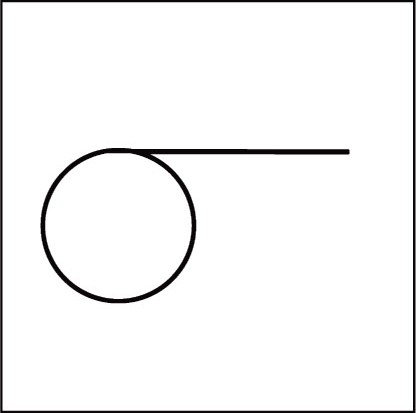Happy Moltmann Monday! Today’s selection comes from Sun of Righteousness, Arise! in a chapter on the resurrection of nature (bold mine):
The resurrection of the dead takes place on this earth, and leads those who have been made alive to ‘a new earth according to his promise in which righteousness dwells’ (2 Peter 3:13)… That is why a resurrection of nature too will not lead to the next world, but into the this-worldliness of the new creation of all things. God does not save his creation for heaven; he renews the earth. That puts all those who hope for a resurrection under an obligation to remain true to the earth, to respect it, and to love it as they love themselves. The earth is the stage of God’s coming kingdom, and so resurrection into God’s kingdom is the hope of this earth.
Are there any pointers in the created world to this future of resurrection? I believe that all created beings are created in the direction of this future, for the consummation of creation ‘in the beginning’ is the feast of creation in God’s creation Sabbath. The seventh day of creation has no evening. God blesses everything he has created through his resting presence. On the Sabbath (God) is present to all.
The first point, which we are just going to hammer in until it’s all we ever hear any Christians saying, is that we are not going anywhere. The idea of Christians going somewhere else where God is and leaving earth is NOT A CHRISTIAN THING, you guys. It doesn’t matter how many bad “Christian” fiction books sell that tell you that. The Bible just does not say that. There is no verse about us flying up to a heaven to be with God and leaving earth behind like some sad little has-been planet. It is weird to say that. Stop saying that. Please, for the love of God, literally, stop it. Being Easter people means that we see how important creation really IS, and we remain true to it by living with it as the Creator has called us to do so.
Now that that’s out of the way, here is a far more interesting thing to ponder. Moltmann mentions this little detail in passing, and I’m not sure if I’ve ever thought of it before, but it’s just a lovely thing: in the creation story in Genesis 1, night and day are an ordered and beautiful cycle, but when the text mentions God resting on the Sabbath, there is no mention of evening. All the other days, in typical Hebrew repetitive style, it’s said that there was evening and there was morning, the X day. Over and over it says this. And then on the seventh day, you’d think to complete this creation narrative cleanly you would wrap it up with this same thing: “and it was evening, and it was morning, the seventh day.” But no.
Probably that is not an accident. And if I had to take a stab at why not, and what it might mean, I’d say that there is something poetic about the Day of the Lord being everlasting, and being not just everlasting, but an everlasting day. It’s a poetic description of the presence of God, which, in fact, we see repeated in Revelation, like a bookend to the poetic way the presence of God is expressed to us. God walks among the people in the city (you know, on the earth, by the way), and it’s always daytime there, and God is always nearby.
But also, this is a great way to understand the difference between the now and the not-yet time of tension in which we live, which is something that’s just obvious to us in Eastertide where we’re celebrating resurrection and watching nothing but death on the news. How do we reconcile these realities? Well, maybe one way of describing it is to say that we are living in evening-and-morning time right now, which cycles around and around and around like the majority of Genesis 1 says it does. But there will be a time when this cycle will break, and we will slingshot around evening to morning and just fling headlong into God’s Sabbath Day, which is always light and never ends. 
I should admit that I’m not great at physics or geometry, so I’m not trying to be deep with this metaphor here. But I think it’s a helpful way for us to say theologically what we proclaim, which is the reality of that line, even as we live in the circle. And Easter shows us that the energy that will sling us around that corner is actually here. It’s not time yet, but when it’s time, we know it’s possible. Easter is the first glimpse of God’s eternal sunrise.

Hey! Thank you for what you wrote about that passage of Moltmann’s book. Now I have to buy that one, too! :)